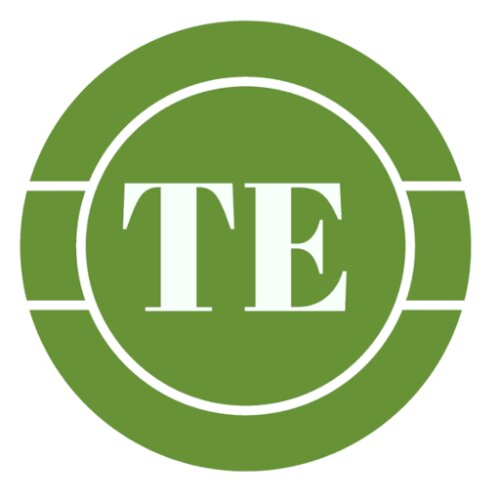Best Estate Planning Lawyers in Oshawa
Share your needs with us, get contacted by law firms.
Free. Takes 2 min.
List of the best lawyers in Oshawa, Canada
About Estate Planning Law in Oshawa, Canada
Estate planning in Oshawa, Canada, involves the process of organizing and managing the distribution of an individual's assets after their death. This typically includes the preparation of legal documents such as wills, trusts, powers of attorney, and healthcare directives. The objective is to ensure that an individual's wishes are followed, their assets are safeguarded, and potential disputes among heirs are minimized. In Oshawa, as elsewhere in Ontario, estate planning is governed by provincial legislation, which sets out the rules and procedures for managing and distributing estates.
Why You May Need a Lawyer
There are several reasons you might seek legal advice for estate planning:
- Complex family situations: Blended families, second marriages, or estranged family members can complicate the distribution process.
- Significant assets: Large or complex estates with multiple properties, investments, or business interests often require a lawyer's expertise to ensure proper management and tax efficiency.
- Minimizing taxes: A lawyer can help identify strategies to reduce estate taxes, ensuring your beneficiaries receive the maximum inheritance possible.
- Creating a valid will: Legal advice ensures your will is clear, legally binding, and less likely to be contested.
- Setting up trusts: Trusts can be used to protect assets and manage distributions under specific conditions. Legal assistance ensures trusts are correctly established and maintained.
- Healthcare directives and power of attorney: Ensuring these documents are correctly drafted and reflect your wishes in case of incapacity requires legal input.
Local Laws Overview
Estate planning in Oshawa falls under Ontario's jurisdiction, which has specific laws and regulations governing the management and distribution of estates. Key aspects include:
- Wills: Ontario's Succession Law Reform Act sets out the requirements for a valid will, including the need for it to be written, signed by the testator, and witnessed by at least two people.
- Intestate Succession: If a person dies without a valid will, their assets are distributed according to the intestate succession rules outlined in the Succession Law Reform Act.
- Estate Administration Tax: This tax is payable on the total value of the deceased's estate and must be paid before an estate certificate is issued by the court.
- Probate: Obtaining probate involves the court validating the deceased’s will, and it is often a necessary step in administering the estate.
- Powers of Attorney: The Substitute Decisions Act governs the creation of powers of attorney for property and personal care, which allow an individual to appoint someone to make decisions on their behalf if they become incapacitated.
- Family Law Considerations: Family Law Act provisions may also impact estate planning, particularly in matters of property division and support obligations.
Frequently Asked Questions
What happens if I die without a will in Oshawa?
If you die without a will, your estate will be distributed according to Ontario's intestate succession rules. This means your assets may not go to the individuals you would have chosen.
How often should I update my will?
It is advisable to review and potentially update your will every three to five years, or after any significant life event such as marriage, divorce, the birth of a child, or the acquisition of substantial assets.
What is probate, and do all wills need to go through probate?
Probate is the process of the court validating a will. Not all wills need to go through probate, but it is often required if the estate contains significant assets, particularly real estate.
Can I write my own will, and is it legally binding?
While you can write your own will, it’s strongly recommended to consult a lawyer to ensure it meets all legal requirements and accurately reflects your wishes to avoid disputes.
What is a living trust, and do I need one?
A living trust is a legal arrangement where you transfer ownership of your assets into a trust during your lifetime, which can help avoid probate and manage assets in the event of incapacity. Whether you need one depends on your specific situation.
Are there any taxes on inheritance in Oshawa?
While Ontario does not have an inheritance tax, the estate itself may be subject to estate administration tax based on its value at the time of death.
How can I reduce taxes on my estate?
Strategies to reduce estate taxes include setting up trusts, making charitable donations, and gifting assets before death. Consulting with a lawyer and a financial advisor can help identify the best options for you.
What is a power of attorney, and why is it important?
A power of attorney is a legal document that allows you to appoint someone else to make decisions on your behalf if you become unable to do so. It is essential for managing your affairs if you are incapacitated.
Can I disinherit a family member in my will?
Yes, you can disinherit a family member, but it should be done carefully and clearly stated in the will to avoid potential legal challenges.
What should I include in my estate plan?
An estate plan should include a will, power of attorney for property, power of attorney for personal care, possibly a living trust, and any specific instructions regarding your healthcare and funeral arrangements.
Additional Resources
For further assistance with estate planning in Oshawa, consider the following resources:
- Ontario Ministry of the Attorney General: Provides information on wills, powers of attorney, and estate administration.
- Ontario Bar Association: Offers resources and can help you find a lawyer specializing in estate planning.
- ServiceOntario: Offers services like applying for probate, searching for wills, and more.
Next Steps
If you need legal assistance with estate planning in Oshawa, consider the following steps:
- Consult with a qualified estate planning lawyer who is familiar with local laws and can advise you based on your individual circumstances.
- Gather all relevant documents and information about your assets, liabilities, and personal wishes to discuss with your lawyer.
- Review and update your estate plan regularly, especially after significant life events, to ensure it remains current and reflective of your wishes.
Taking these steps will help ensure your estate is managed and distributed according to your preferences, providing peace of mind for you and your loved ones.
Lawzana helps you find the best lawyers and law firms in Oshawa through a curated and pre-screened list of qualified legal professionals. Our platform offers rankings and detailed profiles of attorneys and law firms, allowing you to compare based on practice areas, including Estate Planning, experience, and client feedback.
Each profile includes a description of the firm's areas of practice, client reviews, team members and partners, year of establishment, spoken languages, office locations, contact information, social media presence, and any published articles or resources. Most firms on our platform speak English and are experienced in both local and international legal matters.
Get a quote from top-rated law firms in Oshawa, Canada — quickly, securely, and without unnecessary hassle.
Disclaimer:
The information provided on this page is for general informational purposes only and does not constitute legal advice. While we strive to ensure the accuracy and relevance of the content, legal information may change over time, and interpretations of the law can vary. You should always consult with a qualified legal professional for advice specific to your situation.
We disclaim all liability for actions taken or not taken based on the content of this page. If you believe any information is incorrect or outdated, please contact us, and we will review and update it where appropriate.









